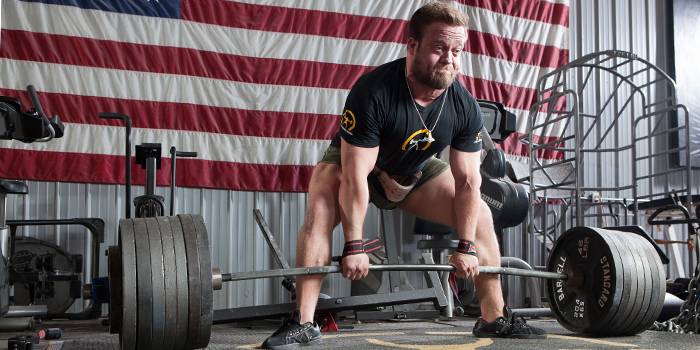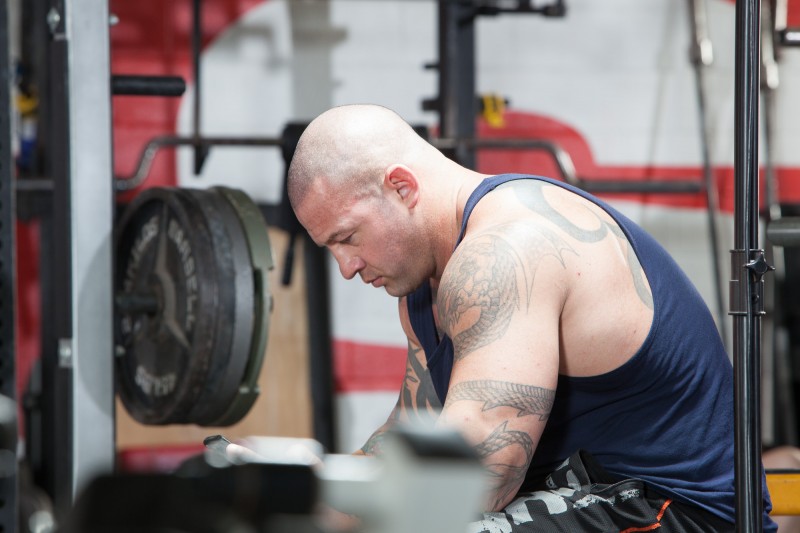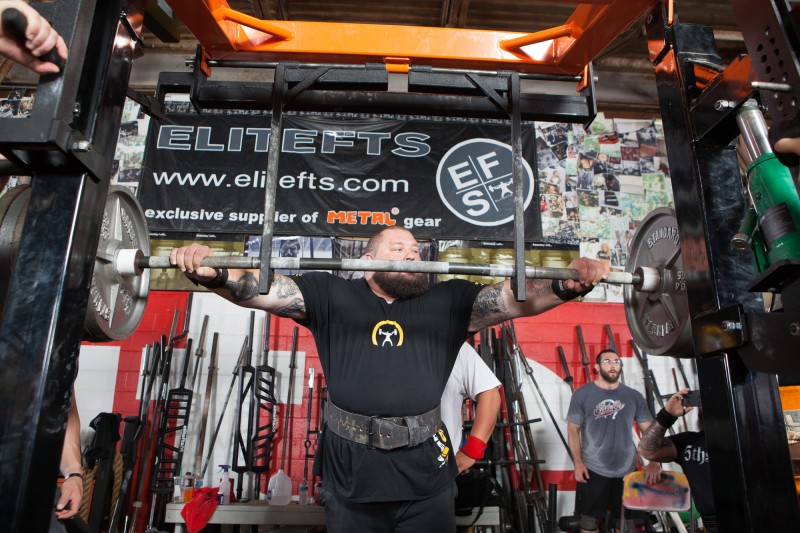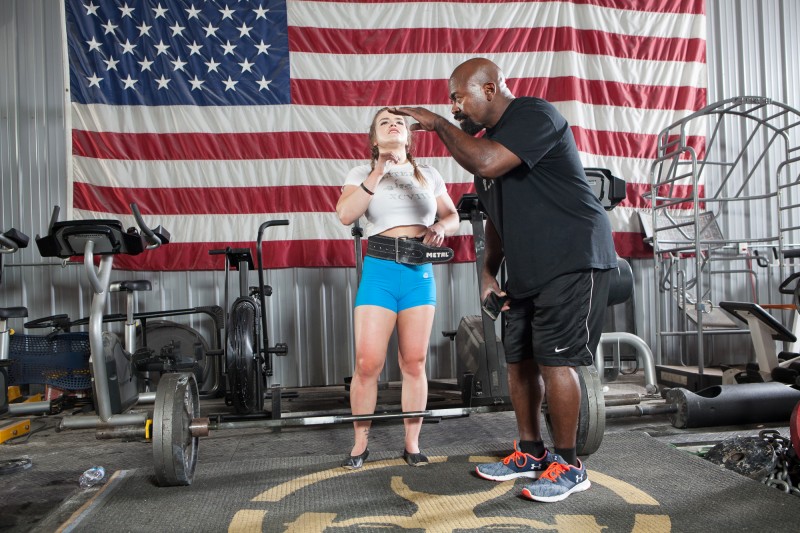
elitefts™ Classic
I highly recommend you read part one and part two of this series before continuing on.
This part, in particular, bears repeating…
These tips are based on my own experience(s) as an elite-level lifter, training with other pro and elite level lifters, being coached by elite lifters and working with and coaching other elite lifters.
These are not in any specific order of importance and will not pertain to everyone. These are the things I find myself repeating over and over again with different lifters. It should also be noted that I would NOT suggest many of these things to anyone who falls outside this target athlete. To make this point even more clear. If you are not an elite or pro strength athlete, many of these suggestions should NOT be applied and they very well could destroy your lifting career or make you suck on the platform. Now, go back and read that one more time. This is not a statement I am writing that is intended to make these look “top secret.”
The Last Two Weeks
Years ago, I overheard a discussion between two elite lifters.
Lifter #1: Hey, I have two weeks before the meet, what should I do?
Lifter #2: There is not a whole lot you can do in two weeks to get stronger so don’t do stupid shit and go in as healthy as you can.
Yes, there are many things you need to do the last two weeks that I will touch on but the takeaway is if you've fallen behind or if your strength level isn’t where you want it to be, there isn’t much you can do to actually get stronger in the last two weeks. Half of this time will be not be training, so we are really speaking about one week. There is NO need to force ANYTHING over the last two weeks. To do so carries a very high risk and offers a very small yield.
What you CAN and SHOULD do is deload, rest and recover, as well as make sure you're mentally ready for the meet. How you deload will depend on your program and how you train, so I’m not going to touch on that. If you are a pro or elite lifter, you know what you need to do to be mentally ready, so I’m also not going to touch on that. What I will say is that this is NOT the time to try new stuff out. Stay with what you know works. Use the off-season for testing new things. If you have 16 weeks of training going into this, it would be VERY stupid to blow it all trying out a new restoration technique or deloading a different way.
PART 1: Top Training Tips For Advanced Lifters — Life Priority and Team Role
One thing you should do TWICE is to make sure you pack all your gear for the meet. Make a checklist and check it three times. I can’t begin to count the number of times I’ve seen an elite lifter forget something at the meet. How someone can spend 16 weeks training for nine specific attempts and forget something as vital as their briefs is beyond me.
You would think this is all common sense, right?
How many times have you heard these?
- I’m not sure what happened. Last week I felt great, I worked up to a PR and KILLED it. Something just isn’t right today (fill in excuse).
- Training was going great until Monday. I went to move (fill in the blank) and tweaked my back.
- I took all week off and just started getting ART done – it felt great. But somehow, I bombed out of my meet.
- I have no idea why my gear doesn’t fit. It was fine last week – I only weigh 18 pounds more.
I know I'm forgetting hundreds of others, but if you've been around the sport, you've heard (and used) most of them. As advanced lifters, you're supposed to learn from these mistakes. When I see the same mistakes by the same guys over and over again It boggles me to no end.
In summary, there isn’t a whole lot you can do to get stronger over the last couple weeks, but there is a lot you can do to screw it all up. Be smart!
You Need to be Coached, Not Programmed
This is the BIGGEST difference between working with advanced lifters and intermediate and beginners. The intermediates and lower need to be programmed and pushed to get better. They need to be told what to do and shouldn't be given much latitude in regards to any changes to the programming. They need to follow it to a "T" and not deviate unless it's absolutely necessary. There are also times when they need their heads pulled out of their asses and pushed because in most cases, they have more in them than they realize and they need to have it pulled and pushed out of them, but this series is not about them. This is about the top one percent, and with them, the rules COMPLETELY change.
I know many coaches, lifters, and trainers who will disagree with this, but these are the guys I know the best. I've trained with them, coached them, sponsored them, are friends with them and work with them. The rules are NOT the same and I know this as a fact from experience with hundreds of lifters.
I HIGHLY suggest you read this article The Science of Winning According to Vasili Alexeyev. Pay particular attention to these sections.
- You want to know the principles of my training? That, forgive me, is a secret. . . I’m joking, of course! I don’t like to speak about this subject because some people won’t understand what I’m talking about while others will say I’m bragging, as if to say, “He’s become a champion and he’s making it up…”
- But then I see that many on our team are already working in my way. Theirs, however, is a copy – not the original. Even though the copy may be a good one, it will always be a step away from the original. You see, the question is not one of strength, not one of talent. It’s a matter of what’s in the head. In the physical sense you should, you need to work very hard, but with the nerves – less . . .
- At different stages, Alexeyev was helped by trainers and he listened to their opinions . . . but only up to a point, to a limit. There was his first teacher, Simon Mileiko, and then Alexander Chuzhin. Rudolf Plyukfelder, it’s felt, also played a definite part. And Vasily also took something from the trainers of the Soviet team. Especially from Arkady Vorobyev. However, he was not a blind follower of orders given from the sidelines.
- All these last years, Alexeyev has been training on his own using his own method which can’t be found in any textbook. All the books say that to achieve great results you have to train vigorously, often lifting maximum weights. But Alexeyev considers this a harmful mistake. More than one book could be written about Alexeyev’s method of winning and I imagine he will write them. Here I will quote some excerpts from his words on this subject, taken from our many chats over the years:
- There is much talk about the art of training. But there is nothing concrete. I myself keep searching for a rational method…constantly…but generally I train differently from anyone else…
- My method is aimed at increasing the two lift total. We have many outstanding weightlifters in the gyms, but very few at the competitions. Why? Well, because one must know how to ‘deliver’ one’s strength on the competing platform. The object of today’s trainers is not to teach an athlete the correct way to lift a barbell. Most important, he must teach him to reason and make important decisions independently. Without thought there’s no creation. And without creation, progress in our difficult work is impossible.\
- When I joined the weightlifting section, there were no sharp definitions between the methods of training. I was not used to training mechanically and I didn’t like this. I began to think for myself, how to organize an effective system of training. I knew from my own experience that, with stubborn effort, one can do anything. I didn’t spare myself. I worked with maximum weights, analyzed my situation, and again began training. I invented many things myself. For example, I began to work a great deal with the barbell in water. I searched and experimented…and here is the result. I made my way from 500 to 600 kilograms in three years. From then on I wanted to be first…

Programming
There are many points being made in this article, but there's one I want to target on and that is your programming. I have nothing against using people to write your programming. I think this is a great idea. Where the problems happen are when you don’t make adjustments based on how you feel because the program says you "have to lift X for Y number of reps." Let’s say you are a 900-pound squatter and your program calls for 2 sets of 3 at 84 percent (756 pounds for 2 sets of 3). If your strength is off five percent that day, this is a 45-pound difference or placing you in a situation where you will actually be doing 89 percent for 2 sets of 3. This is how guys get beat up, hurt, and end up bombing out. A five percent swing on strength for a top guy isn't uncommon. This can be caused by lack of rest, stress, injuries, tweaks, gear not fitting right, and a number of other reasons. You HAVE to learn how to make these percent adjustments in real time. As you work up, you'll know if it feels right or not, you'll know if it’s physical, technical or mental. If you're honest with yourself and think back, you ALREADY KNOW this. You had every one of these thoughts as you worked up. You know when you should mentally fight it, when you should back down and when you should go harder. The problem is that you never gave yourself permission to believe or trust in your own judgment. When you do get to this point, your training will completely change forever and your lifts WILL take off. You'll know when to back off, add more weight and/or shut it down.
PART 2: Top Training Tips For Advanced Lifters — Stay Healthy and Be Your Own Worst Critic
You guys don’t need over-programming because you know how you should feel and how strong you should be 16 weeks out, 12 weeks out, 6 weeks out and 2 weeks out. You also know what you need to do to get there. I’m not saying the programming isn’t important, it is, but it has to be constantly modified, not on a weekly basis, but on a set-by-set basis. Your coach (unless you train with them) can only do so much. The rest has to be done by you.
The last point is you all DO need to be coached. With beginners, it’s usually about getting them to believe in what they can’t do and push them to work harder to get it. Advanced lifters are about getting them to understand what they CAN do and hold them back so they can display what they have to their greatest advantage. The beginner usually underestimates what they are capable of, while the advanced lifter overestimates. They both need to be dialed in but in completely different ways.
More tips coming soon.













1 Comment